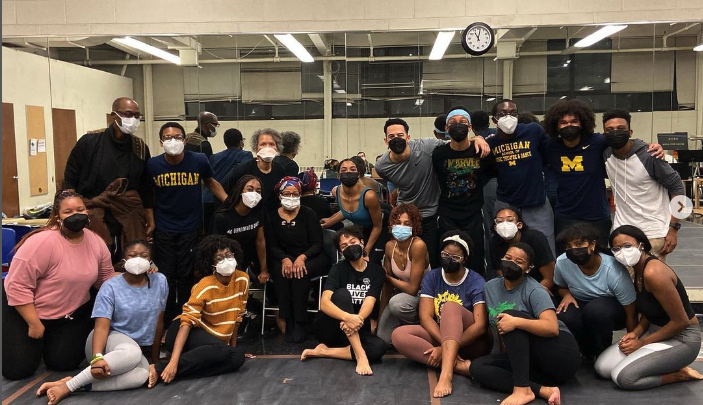School of Music, Theatre & Dance

Black Scholars in Dance is a network of black dancers at The University of Michigan originally organized by students in SMTD. This group’s mission is to create community, foster black dance education, and share knowledge through a variety of classes. The group has gathered to learn from one another, screen black dance performance, and engagement with the wider community. In partnership with SMTD Engagement and Outreach, BSID has had an ongoing relationship with Detroit School of the Arts, teaching classes, talking about college life, and serving as role models for the young people in DSA. Their ongoing and important work aims to amplify the work of black dancers and choreographers at U-M.
Being your best DEI self: Think of a time when you were at your best at advancing diversity, equity, and inclusion. What happened? Who was there? Why did you feel at your best?
“I believe Black Scholars in Dance was at its best in advancing diversity, equity, and inclusion when it just began to form in 2021. One of the core values of BSID is reaching out to underserved communities and being a role model and presence for high school dance students of color. In 2021, members, Brooke Taylor and Mariah Stevens, began to travel to Detroit School of Arts to not only teach class, but to take classes with some of the high school upperclassmen. This was important to our organization because we believe that in order to increase the numbers of diversity in the Michigan Dance Department, we must have a presence in our community. So often the University of Michigan is seen as an unattainable achievement and place for students of color, especially dancers. BSID has been working with the Chair of the Department to continue to find ways to serve the community consistently and not through “one-time” events and activism.”
— Brooke Taylor, member of Black Scholars in Dance
In envisioning the future, how would you describe progress in the realm of diversity, equity, and inclusion? What might it look like?
“In envisioning the future, we believe that progression in the realm of diversity, equity, and inclusion looks like the intersection of social change in all aspects of life, such as in education and in art. If educational institutions began to intersect principles of social change and activism within curricula, students would begin to be exposed to how social change can exist and can expand further than on Martin Luther King Jr. Day and during Black History Month. The future of diversity, equity, and inclusion means learning about all cultures and walks of life throughout the year and not just during the month they have been assigned to in the yearly calendar. Progression is never the end goal; we should never be satisfied until we don’t have to talk about conversations of diversity, equity, and inclusion.”
— Brooke Taylor, member of Black Scholars in Dance
What does it mean to you to be a recipient of the MLK Spirit Awards?
“It is truly a great honor to be a selected nominee of the MLK Spirit Awards. Martin Luther King Jr. emphasized deeply the importance of community service; so much, that one of his known and most repeated questions lies within his quote, “Life’s most persistent and urgent question is: What are you doing for others?” Although few are selected for this distinguished honor, we believe that if all people led with the principles of Martin Luther King Jr. in their lives, the world would understand empathy and love. We use art to embody activism and service and our goal is to continue reimagining and molding how activism can be translated in different mediums.”
— Brooke Taylor, member of Black Scholars in Dance
